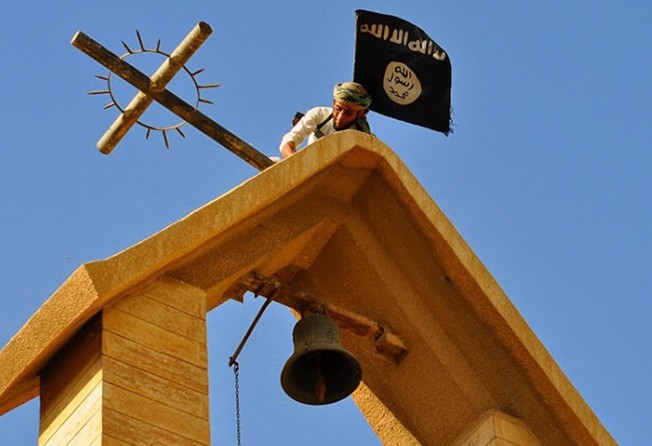Southeast Asia must deal with flow of terrorist recruits to Islamic State
Jeremy Douglas and Hernan Longo call on Southeast Asian governments to do more to prevent people from joining Islamic State, especially given the danger they can pose on return

There are many reasons why the people and governments of Southeast Asia should care about the conflict in Syria and Iraq, the most obvious being the plight of innocent people caught in the crossfire of an intensifying civil and terrorist war. Millions of people now live in territory controlled by the so-called Islamic State, where gross violations of human rights occur every day, and around 4 million people have been displaced and fled to refugee camps in neighbouring countries.
A less visible but increasingly urgent dimension of the problem is the traction that the conflict is having outside the Middle East. A report issued last month by the UN expert team monitoring the implementation of sanctions against al-Qaeda and its associates found that upwards of 25,000 people from more than 100 countries have travelled to Iraq and Syria to join Islamic State, the Al-Nusra Front and different splinter groups of al-Qaeda.
The reasons people are choosing to become foreign terrorist fighters are complex. While the largest number appear to be ideologically motivated, in some instances it could be related to perceived lack of opportunity, severe identity crisis or more complex social motivations - or a combination of factors.
There isn't a specific profile of a foreign terrorist fighter either. They have varying levels of education and come from different walks of life. The vast majority are young men, but there have been increasing reports of women and even entire families travelling together to join and fight with Islamic State.
While significant numbers of foreign fighters travel from other parts of the Middle East, Central Asia and Europe, Southeast Asia has become a important source of new recruits for Islamic State as well. Getting accurate data from within terrorist groups is very difficult, but experts estimate that there are already around 1,000 Southeast Asian fighters who have joined Islamic State and the other terrorist groups. And the figures are rising: the UN estimates that between the middle of 2014 and March 2015, fighters travelling from different parts of Asia and Europe to Syria and Iraq went up tenfold. The reasons for such a striking increase could be many, including improved monitoring and intelligence, but highly sophisticated communications and recruiting campaigns developed by Islamic State are clearly a factor.
There is no denying that foreign terrorist fighters represent a serious security threat to the countries they come from, as well as the countries they travel through or take shelter in. They become battle-hardened from intense combat and may suffer from psychological issues. And they can employ the operational experience they have acquired to expand and influence the capacity of domestic terrorist networks when they return home. This has already happened before - a well-documented case being the participation of Indonesian veterans of the 1980s Afghanistan conflict in the 2002 Bali bombings - and could happen again.
In September last year, the UN Security Council issued Resolution 2178, establishing a comprehensive set of measures for countries to deal with foreign terrorist fighters. Improving national laws and enhancing law enforcement and judicial capabilities are identified as priorities. The Security Council also called for stopping the travel of foreign fighters, criminalising and prosecuting recruitment and training, disrupting financial support, and addressing the underlying causes of violent extremism.
Implementation of these measures will require political will and intense concerted efforts by every government in Southeast Asia and the Association of Southeast Asian Nations, with the support of the UN. Information will need to be shared, and differences will need to be put aside to ensure cooperation at different levels and across jurisdictions. The growing number of Southeast Asians fighting with Islamic State requires the region to come together on solutions with a sense of urgency.
Jeremy Douglas is the United Nations Office on Drugs and Crime (UNODC) regional representative for Southeast Asia and the Pacific. Hernan Longo is a UNODC counterterrorism adviser for Southeast Asia